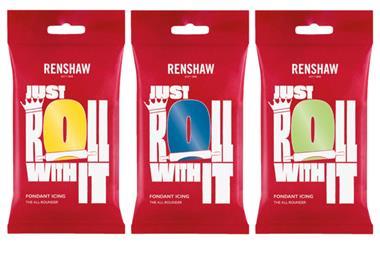Environment Secretary Michael Gove has announced the introduction of a new law that makes full ingredient labelling mandatory on all pre-packed food.
The legislation, due to be introduced by the end of the summer, follows the death of teenager Natasha Ednan-Laperouse, who died after suffering an allergic reaction to sesame used in the dough of a Pret A Manger baguette.
The new law has drawn a mixed reaction, with many welcoming it but some trade groups stating it ignores the risk of cross-contamination.
Food Standards Agency
Heather Hancock, chair
I warmly welcome the Secretary of State’s announcement: this is an important step forward in our ambition for the UK to become the best place in the world for people living with food hypersensitivities.
We know that the impact of food allergy and intolerance on quality of life can be as great as, or even greater than, almost all other foodborne diseases.
While it is impossible to eliminate the risks entirely, we believe the Secretary of State’s announcement of this change in the rules will mean better protection for allergic consumers.
Tanya and Nadim Ednan-Laperouse
Parents of Natasha Ednan-Laperouse
We are absolutely delighted that the Secretary of State has announced the government’s decision to go ahead with full allergen and ingredients labelling. While Natasha’s Law comes too late to save our beloved daughter, we believe that helping save other allergy sufferers and their families from the enduring agony that we will always bear is a fitting legacy for her life.
We would personally like to thank Michael Gove and Health Secretary Matt Hancock for their unflinching support in doing the right thing on behalf of all people with allergies, and their support in setting up the Natasha Allergy Research Foundation, which we are launching today in Natasha’s memory.
British Sandwich Association
Jim Winship, director
We believe this will result in more danger to consumers with allergies rather than less as there is always going to be a risk of cross-contamination in food businesses with small kitchen areas. Small food businesses also rarely have the technical knowledge to be able to provide the detail required to comply with full labelling requirements.
Many small operators are extremely worried by the risks involved and that the costs in meeting these new requirements will make their businesses uneconomic.
We wait to see the detail of the legislation, but are concerned that this decision has been driven by political objectives rather than good sense.
We will obviously work with our members to help them comply with this new requirement as best we can.
UK Hospitality
We understand the sensitivity around the introduction of the legislation, but we also think this is a retrograde step.
Food safety is an incredibly important issue to our members and the entire sector. Many businesses have already taken voluntary steps to proactively deal with the issue and continue to do so. We take the matter very seriously and maintain high standards, but we are worried that this new legislation could be unwieldy, difficult for some businesses to implement and potentially dangerous.
We firmly believe the best way to raise awareness of allergens and keep customers safe is to promote an active dialogue between customers and businesses. That is why we recommended the promotion of voluntary labelling and encouraging customers to talk to the business and ask about ingredients and possible allergens. That way, we can build a relationship between consumers and team members that promotes mindfulness on both sides.
We are worried that full ingredients labelling is going to prevent the kind of dialogue we need to promote. Some smaller businesses may struggle with the unwieldy new legislation and it is almost certainly going to lead to much less choice for customers. There is also a risk that the new measures, which will not circumvent cross-contamination and will be open to mislabelling, will only promote a dangerous reliance on labelling.
Allergy UK
Carla Jones, CEO
We are delighted with the news that Defra’s labelling review backs mandatory full ingredients labelling for pre-packed direct sale food.
This move… will improve the lives of the allergic customer and it is warmly welcomed here at Allergy UK.
Pret A Manger
We are pleased the government has chosen to support full ingredients labelling.
As part of Pret’s Allergy Plan, full ingredients labels are now in over 60 Pret shops as part of our nationwide rollout. Before we took this step, we ran a number of pilots to confirm that this approach would be safe, practical and effective.
Thanks to the dedication of many Pret team members, we have been able to show that full ingredients labelling is operationally possible in small kitchens when proper care is taken.
British Beer & Pub Association
Brigid Simmonds, chief executive
As a sector, brewers and pubs are fully supportive of efforts to keep consumers safe. For those consumers who have intolerances or sensitivities that go beyond the 14 allergens listed in Food Information for Consumers, full ingredient listings will help. It is also important, however, to continue to encourage dialogue between businesses and consumers, so customers still ask about ingredients and allergens when buying products.
Although the mandatory introduction of full ingredient labelling is unlikely to impact brewers or pubs as much as other sectors, it is important the government recognises that smaller producers may struggle to meet new labelling requirements. Implementation by the summer of 2021, however, is welcome – particularly for small businesses to allow them time to develop the processes necessary to declare full ingredient information.



































No comments yet